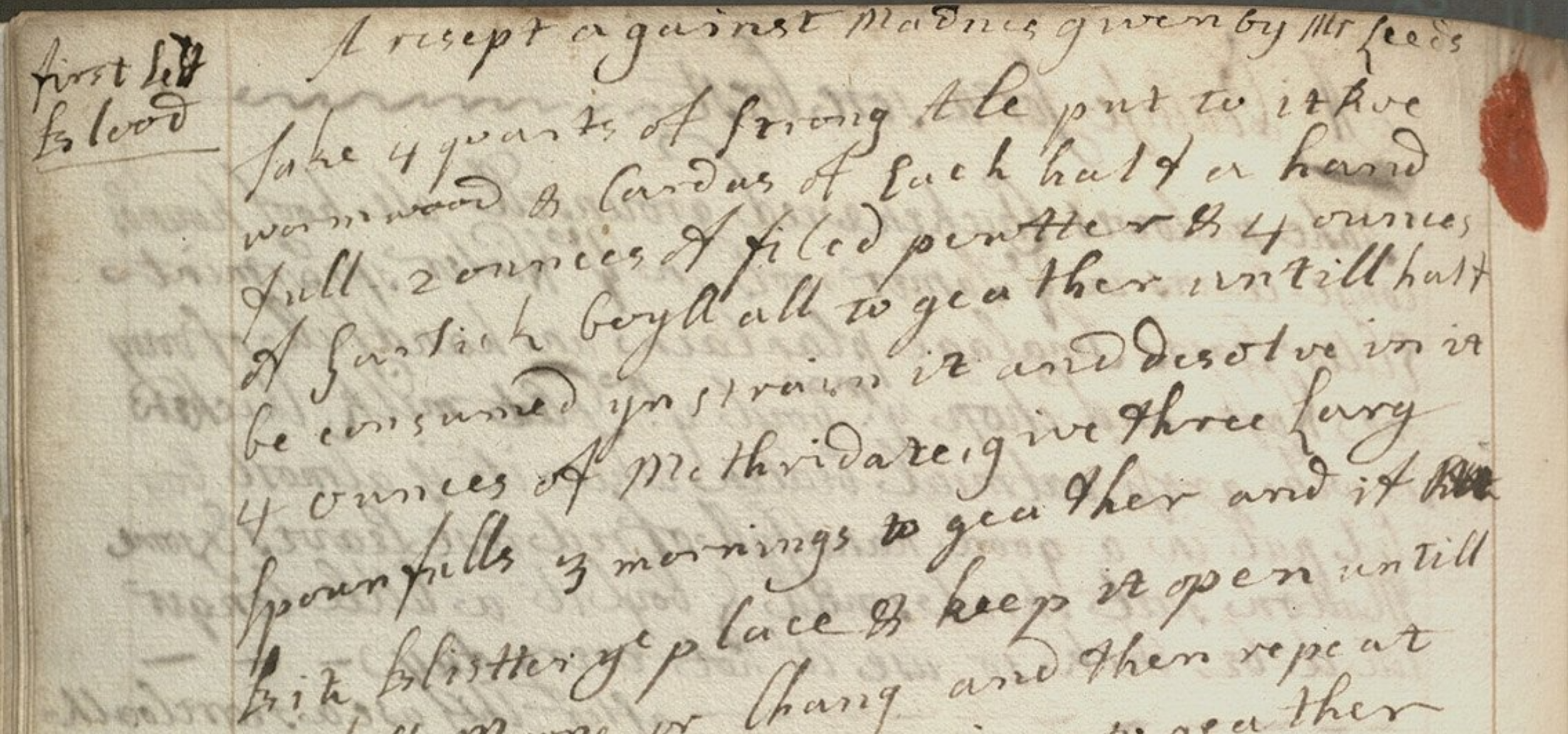Project History
This project began during the 2016 spring semester. There were three main objectives:
- Team building for Arts and Humanities Subject team
- Developing Digital Humanities related skills
- Producing an Omeka site based on the Elizabeth Fairfax Cookbook, an 18th century manuscript held at Mason Libraries’ Special Collections Research Center (SCRC)
The Arts and Humanities Subject Team was a very new unit, having been created as part of a larger Libraries’ reorganization less than a year prior. As such, our division’s Associate University Librarian, Diane Smith, encouraged me as the Team Lead to develop a team wide project that would help us develop relevant skills. Accordingly, George Oberle, the History Librarian, and I developed a project proposal based on the Elizabeth Fairfax Cookbook, which had recently been digitized by our colleagues in SCRC. We based the framework of our proposal on the Developing Librarian Project (2013-2015) at Columbia University Libraries (Bakkalbasi, Jaggars, and Rockenbach). In addition to our work on the project, we all took a DH skills assessment. Individual team members also held monthly DH skill workshops for each other.
Our original timeline called for the site to be launched the following year. This did not happen. The reasons for that were a mixture of the technological and human. Although we made a great deal of progress the first year, we had a lot of issues with the original stand alone Omeka system (now called “Omeka Classic”) and the plugin that we used for transcriptions. After hearing that Mason's Roy Rosenzweig Center for History and New Media was developing a new site based Omeka S platform, we decided to delay the project’s release in order to take advantage of that. Unfortunately, transferring our work between the original Omeka site and Mason Libraries’ new Omeka S installation turned out to be more complicated and difficult than we had expected. Meanwhile, other competing priorities for our time emerged. The Covid pandemic struck, one team member’s job was restructured to include a half time appointment as a teaching faculty member, and another served in an interim administrative role for nearly two years. Despite these interruptions, slow progress continued to be made intermittently, and project team members applied the DH skills they had to learned to other projects, including the Center for Mason Legacies’ “Mason Account Book” Omeka site (George Oberle) the Center for History and New Media’s “Gaming the Great Plague” project (Stephanie Grimm).
In 2024, after a great deal of discussion, we decided to revitalize the project with a revised project plan and delivery date – spring 2025. Had we stuck with the original Omeka site, we probably would have made our original 2017 launch date. However, the resulting site would have been more limited than the Omeka S site that we ultimately launched. In fact, we would probably now be trying to decide whether to port the original site over to Omeka S. Moreover, our vision for the site has evolved during the intervening years as new team members with their own interests and areas of expertise have joined us and additional archival resources for tracing the Recipe Book’s material history emerged.
Even so, this public launch is not final since one of the affordances of digital projects is the ability to make continual refinements and changes. There are still so many more stories to tell. We also look forward to the contributions of future partners.
Jen (Stevens) Fehsenfeld
May 2025
References
Bakkalbasi, N., Jaggars, D., & Rockenbach, B. (2015). Re-skilling for the digital humanities: measuring skills, engagement, and learning. Library Management, 36(3), 208–214. https://doi.org/10.1108/LM-09-2014-0109
